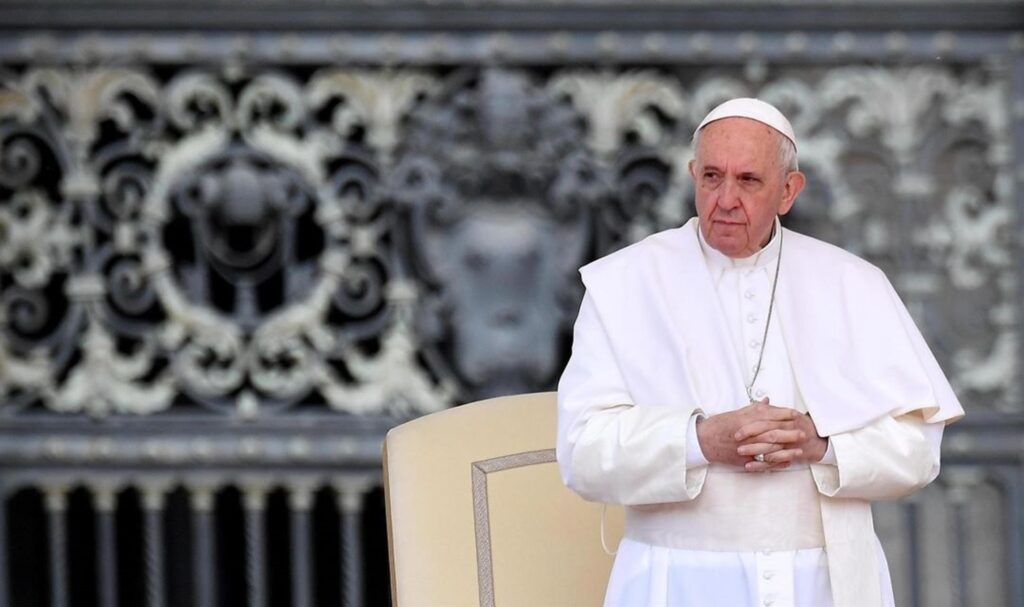
Why does Pope Francis, like Putin, only demand the surrender of the Ukrainians and not the withdrawal of the Russians?
By Fernando Mires (Confidencial)
HAVANA TIMES – In the widely publicized interview granted by the pope on March 9, 2024, to Lorenzo Buccella, a journalist from Swiss Radio Television, later published in the magazine Cliché, the following question was asked: In Ukraine, some are calling for the courage to surrender, to raise the white flag. But others say that this would legitimize the strongest. What do you think?
And this was the discordant response uttered by the man most called upon to seek concord: the pope.
“It’s an interpretation. But I believe that the one who observes the situation, thinks about the people, and has the courage to raise the white flag and negotiate is stronger. And today, negotiations can be conducted with the help of international powers. They are there. That word ‘negotiate’ is a brave word. When you see that you’re defeated, that things aren’t going well, to have the courage to negotiate. And you’re ashamed, but if you continue like this, how many deaths will there be then? And it will end even worse. Negotiate in time, look for some country to act as a mediator. Today, for example, with the war in Ukraine, there are many who want to act as mediators. Turkey, for example… Don’t be ashamed to negotiate before things get worse.”
The public discord provoked by Francis’s words in the interview — evidently prepared for the pope to express his opinion on Ukraine and other wars — does not stem from the fact that he called for negotiation. Wars sometimes end with negotiations and sometimes not (World War II ended with surrender and the almost total destruction of Germany). There are others that end with negotiations involving third parties, as was the case with those that led to the end of the Vietnam War when the US, through Kissinger, sought talks with the USSR and, above all, with China.
The discord unleashed by the pope comes from the fact that, grammatically, negotiation comes second after surrender, meaning that, according to Francis, negotiation must result from the surrender of Ukraine, and not vice versa.
The astonishing thing is that the pope’s response coincides exactly with Putin’s position on the negotiation issue. In contrast to Putin and the pope, Ukraine’s position demands, as a condition for negotiation, that Putin withdraw his military forces because no nation can negotiate with another if its territory is occupied by an invader. So, note the difference: Putin demands the surrender of Ukraine, Zelensky demands only the withdrawal of Putin. The pope, in turn, by demanding surrender as a condition for negotiation, requires, whether consciously or not, the surrender of a large part of Ukraine to Russia. With all due respect to the faithful, I believe there is no other way to interpret that response.
The problem is serious. Why does Francis, like Putin, only demand the surrender of the Ukrainians and not the withdrawal of the Russians? The Vatican’s response suggests that the pope has definitively considered Ukraine lost, and by considering it lost, confers — amid a war that is far from over! — the status of victor to Putin’s Russia, a heavily armed country that in more than two years has only managed to advance a few kilometers since the invasion began. In other words: not between the lines, but directly, Ukraine must submit to the wishes of the dictator already crowned by Francis as the victor.
That Francis addresses only the Ukrainians and not the Russians is ethically and politically unacceptable, even more so when considering that, as in any war, there are two parties responsible, one of which, Russia, has not only been omitted but also absolved of all moral and religious criticism. This means that the pope assumes, once again, Putin’s version, propagated by so many scoundrels with media access, namely: that the blame for the war lies with Ukraine for allowing itself to be turned into a pawn of the US and the EU with the collaboration of the “fascist” Zelensky.
The pope did not say it in those words, but he did construct a radical inversion of reality: an interpretation that overlooks the objective fact that Ukraine was and is an independent and sovereign nation, recognized by the UN and the nations that make it up, including Russia until recently; in short, a nation invaded by an empire and that, unlike Russia, has never attacked any other nation.
Naturally, European countries do not collaborate with Ukraine for philanthropic reasons, but for weighty strategic reasons, all stemming from the fact that Ru


